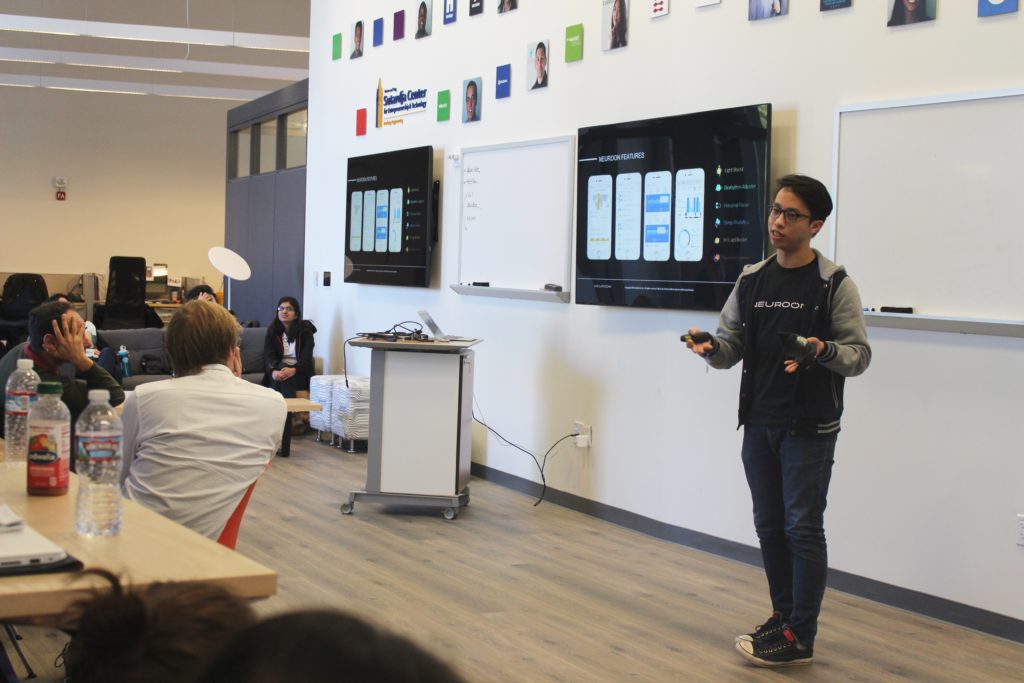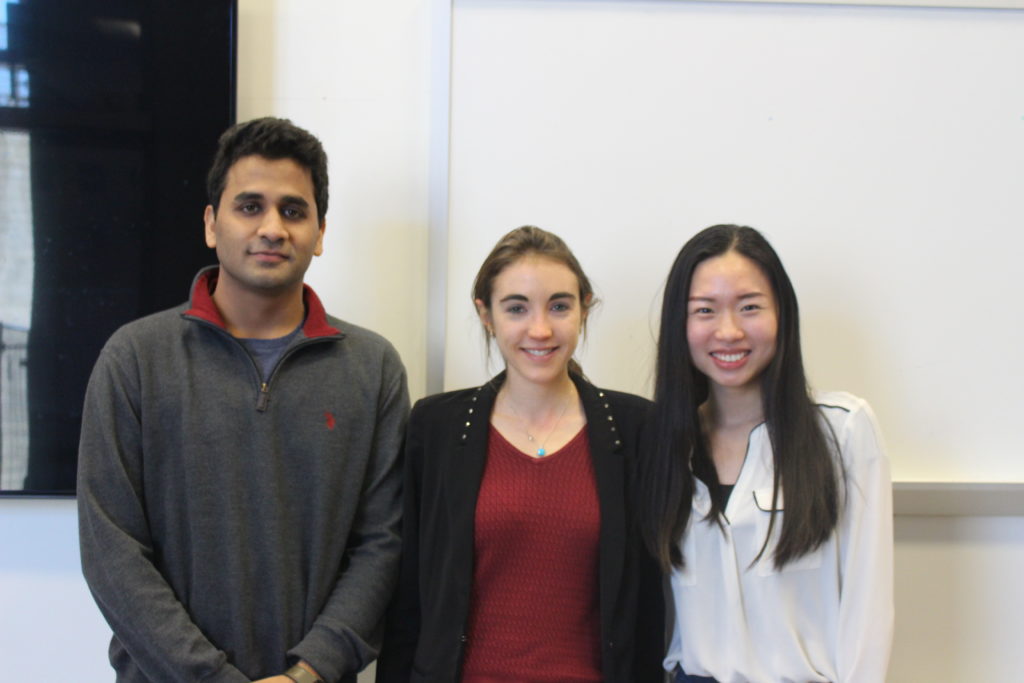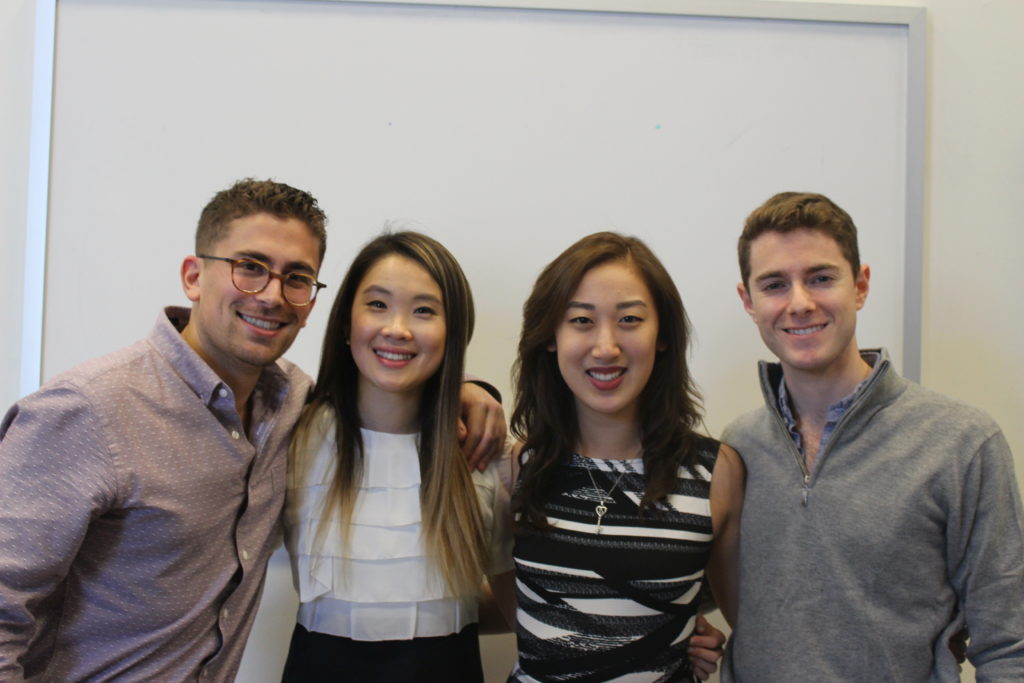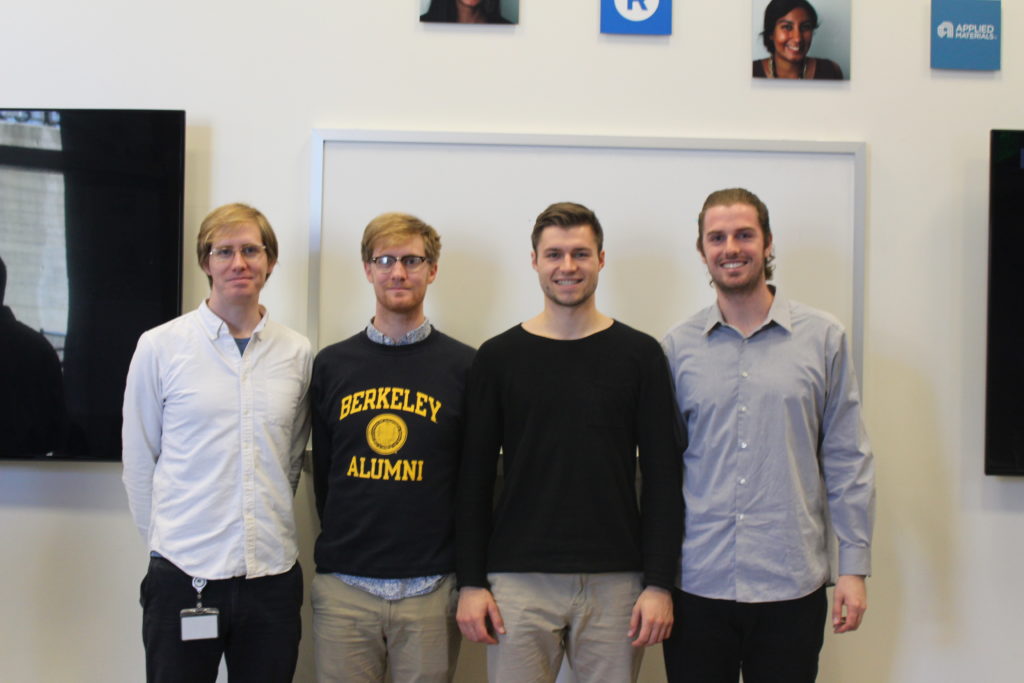
Friday, December 2nd, 2016 saw the culmination of hard work students enrolled in MTI had put in all semester as groups presented their pitches to Naeem Zafar, serial entrepreneur and director of the MTI Program, Professor Ikhlaq Sidhu, Director and Chief Scientist of SCET, and a panel of prominent VCs and mentors at SCET.
Over the semester, graduate and post-doctoral students took ideas from start to finish, learning about technology-based innovation and entrepreneurship through rigorous case studies, class discussions, market research, and lectures, and applied these insights to their own ventures. Here are brief synopses from some of the teams.
Team WattHot
 What is WattHot? Where do you see it in the future?
What is WattHot? Where do you see it in the future?
WattHot is a smart charging software for Electric Vehicles. We aggregate and coordinate Electric Vehicle charging in order to sell regulation grid services.The technology and algorithm come from a research lab in the CEE department: Energy Controls and Applications Lab under the supervision of Prof. Scott Moura.
We are currently in discussion with the automaker Renault to organize a proof of concept in Spring 2017. This would showcase how Electric Vehicles can participate in energy markets and regulate our electric grid.
What was the most valuable thing that you took away from MTI?
We learnt a lot during the MTI class: we performed lots of customer interviews and understood the real value of our technology. Mentors and Professors helped refine our pitch and encouraged us when we had to pivot.
WattHot won $5,000 in cash prize from the Vertex Venture and free admittance to the GMIC conference plus six months of mentoring from the principals at the Ironfire Ventures.
Team Meristem Biosciences
What is Meristem? Where do you see it in the future?
The cut flower market is a ~$4 billion industry in the U.S. This is a large, stagnant market with many unmet needs, and few companies actually addressing the problems. Meristem Biosciences will use CRISPR, the most advanced genome editing technology, to increase value to the flower market by creating new breeds of high demand cut flowers that have enhanced properties such as increased vase life, optimized aesthetics, and desirable aroma.
What was the most valuable thing that you took away from MTI?
We joined this class, individually, hoping to learn some basics of creating a startup. This class allowed us to see what is really at stake, financially. We learned how to come up with a financial statement using numbers and estimates from other similar biotechnology companies.
Meristem team won $2,000 in cash award that will help them get the company registered and moving.
Team NLYTIN

What is NLYTIN? Where do you see it in the future?
NLYTN Beauty [pronounced En-lighten] provides a cream to cure severe acne based on some very cutting edge research. Current treatment options for bacterial infections target conserved bacterial elements resulting in the broad destruction of the microflora in pursuit of often a single pathogen. This leads to the multitude of systemic side effects. NLYTN provides a new paradigm in bacterial disease treatment. Starting with digital disease models based on the latest meta-genomic sequencing technologies, they identify the specific pathogenic strain(s) associated with a disease. And then using their proprietary protocol create a cocktail of bacteriophage (bacteria’s natural predator) designed and curated to eliminate just the strains necessary to treat an individual’s disease or pathology, and return them to a healthy state.
What was the most valuable thing that you took away from MTI?
I can say that I did learn the principles that I had hoped to learn. More importantly though, I learned how crucial all the other aspects of the entrepreneurial ecosystem are and that in order to be successful storytelling and building rapport are essential.
NLYTN Beauty team won $5,000 in cash award that will help them get started on their journey.
Next Semester:
MTI continues for Spring 2017 and now is expanded to have two tracks in parallel. Teams that want to pursue an idea for possible funding should take Track 1 that is being offered with NSF I-Corps. Initiative with $20,000 in awards and a chance to get intense mentoring and knowledge in a unique format using three bootcamps. MTI in 2017 also caters to graduate students and post-doctoral researchers on understanding the basics on business and the method of entrepreneurship.
Please come to one of many info sessions to learn if MTI is the right course for you:
Fridays January 20th, 27th and February 3rd, 11am to 1pm in Jacobs Hall 210
Or write to nzafar@berkeley.edu
Comments from Students who took MTI in the past:
“The class has given me a bigger appreciation for the importance of research. Through this class, I learned that it is crucial for researchers to understand that no matter how revolutionary the discovery is, if the challenges related to product launch are not overcome (such as no current market, poor product design, and etc.), the product or concept will never reach the market. However, the most beneficial learning experience was being able to participate in the development of the start-up with a group of amazing entrepreneurs and receive feedback from real venture capitalists and angels every week.”
-Anna Song, Ph.D. Candidate, Chemical Engineering
“The lectures in the course offered a huge range of information in the domain of business management. The introductory lecture by Prof. Ikhlaq Sidhu concerning the ideation journey of startups, was a good introduction into what the course offers and what to expect out of the semester. Also, the lectures on Legal Aspects, Financial Statements and Funding toolkit by Prof. Naeem Zafar were some that really stood out.”
–Apoorv Garg, Master’s Student, Industrial Engineering and Operations Research
“I learned A LOT about starting a company. Most importantly, I learned about both things I thought I already knew, as well as I think I wouldn’t have thought to ask. I picked up on tons of jargon so now I feel way more comfortable and confident to go venture in this environment.”
-Joshua Saltz, M.S. Candidate, Chemical Engineering
“Before starting the class my expectation was that if you have a great idea and build a great product, you have a great chance of getting funding. I realized more and more that if you are unable to structure your thoughts and define the main value proposition that you present to both customers and investors, the startup is likely to fail. I took this learning and applied it to my latest project: a medical device for developing countries in a prototype competition. When preparing the pitch, we started with a compelling story. We additionally focused on a few major points, rather than presenting all our findings. Finally, we scripted the final presentation, making sure that we are able to relate to the audience and have a great pitch without any clutter – in the end, this helped us to win the competition!”
-Patrick Thalen, Ph.D. Candidate, Industrial Engineering and Operations Research
“After analyzing case studies in this course, the progression of my project, and the progression of my classmates’ projects, I realize how common and normal failure is. Failure is a learning process, that shows you what can go wrong in pursuit of reaching a goal. It is not an experience to fear, and without it, you cannot learn. I now hope to make mistakes early and often in my career in order to accelerate the learning processes. “
-Gina Zaghi, M.S. Candidate
